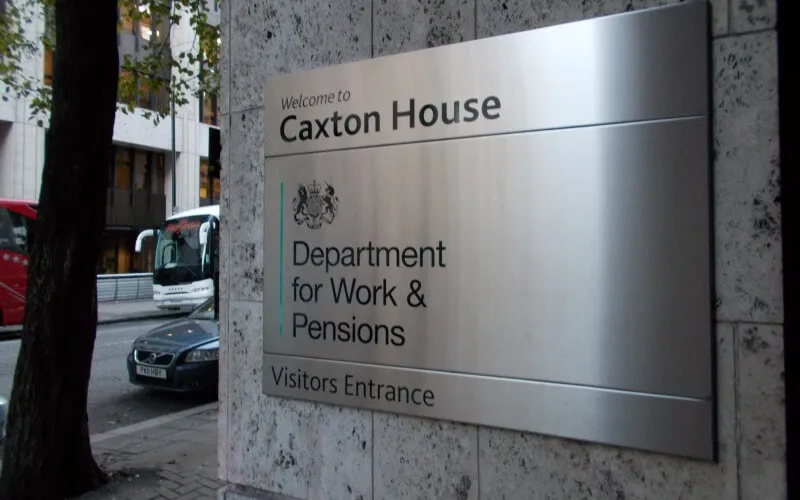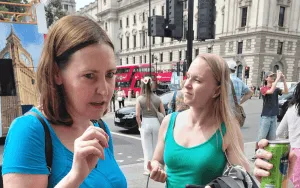A disabled student has launched a legal case against the Department for Work and Pensions over an “unlawful” policy that prevents many disabled students claiming universal credit.
Sidra Kauser, from Halifax, who is studying for a master’s degree at the University of York, has a student loan which fails to cover the cost of her tuition fees and rented accommodation, and so is forced to survive on her personal independence payment.
She applied for universal credit after her health deteriorated, when she was already a student.
But DWP refuses to carry out work capability assessments on existing full-time students, so it rejected her application, preventing her receiving between £540 and £680 a month.
If she had been assessed before beginning her full-time studies, she would have been able to continue claiming UC while studying for her master’s, according to her solicitors, Leigh Day.
Kauser says the DWP policy is “irrational and unlawful”.
Her claim is supported by Disability Rights UK, which has been campaigning on the issue for three years and believes the policy could affect as many as 30,000 disabled students.
DWP has argued that allowing disabled students like Kauser to claim universal credit would duplicate other support available to disabled students.
Bowing to calls from developers to relax planning rules would worsen the shortage of accessible homes, a coalition of housing, disability and older people’s organisations have warned the government.
The Housing Made for Everyone (HoME) coalition, which includes Disability Rights UK and the Centre for Ageing Better, fears the government will accept growing demands from the housing industry to loosen planning restrictions in response to the coronavirus pandemic.
In an open letter to housing minister Christopher Pincher, the coalition says the coronavirus crisis has meant, for millions of people, “being stuck in homes that are deemed hazardous to their health”.
It tells Pincher: “As we rebuild our economy and as the building of new homes accelerates, we must remember that the homes we build now will be there for many decades to come and must be fit for the future, enabling people to live healthily and independently in their own homes.”
The coalition is calling on the government instead to establish the accessible and adaptable design standard – M4 category two in building regulations – as the “regulatory baseline” for all new homes.
Wheelchair-user Daniel Slade, who is 50 years old but has been forced to live in an older people’s care home because of the lack of accessible housing, is backing the coalition’s calls.
He said: “Most of the other residents in my care home are between my parents’ and grandparents’ age, but at 50 I should still be living independently.
“I was an adventurous person before my accident which led me to my disability, and I feel like each day in here is draining my morale from me.
“It’s a shame that the only thing stopping me from living my life to its full potential is the lack of accessible housing in my area.”
The government has begun recruiting for a new chair of the Equality and Human Rights Commission, and up to four new board members.
David Isaac, EHRC’s chair, will leave the commission in August, with a replacement likely to be appointed this winter. Applications close on 3 August.
News of the appointment process was released as the commission came under attack for blocking an inquiry into links between the Department for Work and Pensions and the deaths of disabled benefit claimants (see separate story).
A disabled campaigner who played a leading role in supporting survivors of church-related sexual abuse has been recognised with one of the Archbishop of Canterbury’s annual Lambeth Awards, which recognise outstanding contributions to the Church of England and wider society.
Dr Margaret Kennedy, who receives The Langton Award for Community Service, founded Minister And Clergy Sexual Abuse Survivors (MACSAS) and is described in her citation as “almost legendary” among survivors and as having made an “outstanding” contribution to social action.
MACSAS continues to fight for changes in safeguarding and improved responses to survivors of church-related abuse across all Christian denominations.
Among her other achievements, she carried out ground-breaking work in the late 1980s that drew attention for the first time to the hidden abuse of disabled children.
Now living in Ireland, Kennedy continues to campaign against clergy sexual abuse and against disability discrimination and abuse in Ireland.
A disabled people’s organisation and a leading legal firm have secured funding to recruit a disabled person to train as a solicitor.
The successful candidate will specialise in social justice at solicitors Deighton Pierce Glynn.
The grant was awarded under the Justice First Fellowship scheme, which was established by The Legal Education Foundation.
Inclusion London said the grant would provide “a unique opportunity for a disabled person to train at a highly regarded civil rights and judicial review firm” while also working on secondment at Inclusion London during their training.
Applications open next month.
The two organisations have worked closely together for several years on legal cases affecting disabled people, including those on cuts to services, the closure of the Independent Living Fund, discrimination by transport providers, and the lack of access to justice for disabled people.
A note from the editor:
Please consider making a voluntary financial contribution to support the work of DNS and allow it to continue producing independent, carefully-researched news stories that focus on the lives and rights of disabled people and their user-led organisations.
Please do not contribute if you cannot afford to do so, and please note that DNS is not a charity. It is run and owned by disabled journalist John Pring and has been from its launch in April 2009.
Thank you for anything you can do to support the work of DNS…

 Disabled MP who quit government over benefit cuts tells DNS: ‘The consequences will be devastating’
Disabled MP who quit government over benefit cuts tells DNS: ‘The consequences will be devastating’ Minister finally admits that working-age benefits spending is stable, despite months of ‘spiralling’ claims
Minister finally admits that working-age benefits spending is stable, despite months of ‘spiralling’ claims Timms says cuts must go ahead, despite being reminded of risk that disabled claimants could die
Timms says cuts must go ahead, despite being reminded of risk that disabled claimants could die